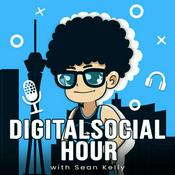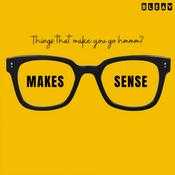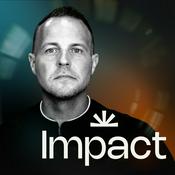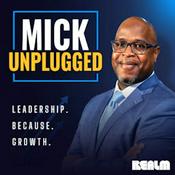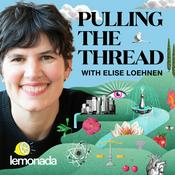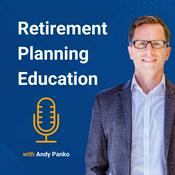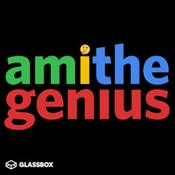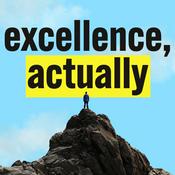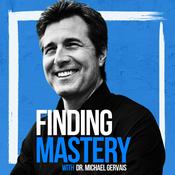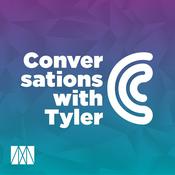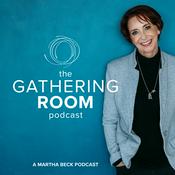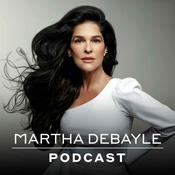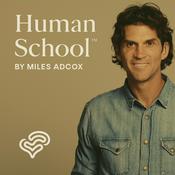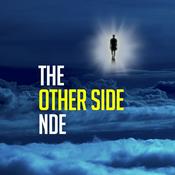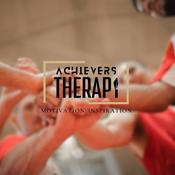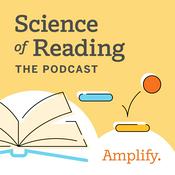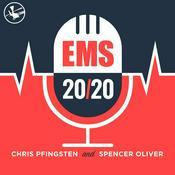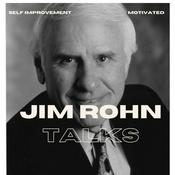15 episodes
- The story from Janet Hyde about her motivations to get a grant and "fight with data" can be found here:
https://www.psychologicalscience.org/observer/janet-shibley-hyde-sinks-stereotypes-with-data
Cat summarizes a ton of research for this episode. Key citations, most of which contain large literature reviews themselves:
Adamecz-Völgyi, A., Jerrim, J., Pingault, J. B., & Shure, N. (2023). Overconfident boys: The gender gap in mathematics self-assessment.
Brescoll, V. L., Dawson, E., & Uhlmann, E. L. (2010). Hard won and easily lost: The fragile status of leaders in gender-stereotype-incongruent occupations. Psychological Science, 21(11), 1640-1642.
Carr, M., Jessup, D. L., & Fuller, D. (1999). Gender differences in first-grade mathematics strategy use: Parent and teacher contributions. Journal for research in mathematics education, 30(1), 20-46.
Del Toro, J., Legette, K., Christophe, N. K., Pasco, M., Miller-Cotto, D., & Wang, M. T. (2024). When ethnic–racial discrimination from math teachers spills over and predicts the math adjustment of nondiscriminated adolescents: The mediating role of math classroom climate perceptions. Developmental psychology.
Else-Quest, N. M., Hyde, J. S., & Linn, M. C. (2010). Cross-national patterns of gender differences in mathematics: a meta-analysis. Psychological bulletin, 136(1), 103.
Gesuelli, K. A., Miller-Cotto, D., & Barbieri, C. A. (2025). Variability in math achievement growth among students with early math learning difficulties and the role of school supports. Journal of Educational Psychology.
Hyde, J. S., & Linn, M. C. (2006). Gender similarities in mathematics and science. Science, 314(5799), 599-600.
Hyde, J. S., Lindberg, S. M., Linn, M. C., Ellis, A. B., & Williams, C. C. (2008). Gender similarities characterize math performance. Science, 321(5888), 494-495.
Hyde, J. S., & Mertz, J. E. (2009). Gender, culture, and mathematics performance. Proceedings of the national academy of sciences, 106(22), 8801-8807.
Hyde, J. S., & Mertz, J. E. (2009). Reply to Crespi: Gender similarities, culture, and mathematics performance. Proceedings of the National Academy of Sciences, 106(37), E103-E103.
Hyde, J. S., Bigler, R. S., Joel, D., Tate, C. C., & van Anders, S. M. (2019). The future of sex and gender in psychology: Five challenges to the gender binary. American Psychologist, 74(2), 171.
Kane, J. M., & Mertz, J. E. (2012). Debunking myths about gender and mathematics performance. Notices of the AMS, 59(1), 10-21.
Lindberg, S. M., Hyde, J. S., Petersen, J. L., & Linn, M. C. (2010). New trends in gender and mathematics performance: a meta-analysis. Psychological b
Learn more about Ashley:
https://ashleyjuavinett.com/
https://mastodon.social/@analog_ashley
analog-ashley.bsky.social
Learn more about Cat:
https://www.drcathicks.com/
https://mastodon.social/@grimalkina
grimalkina.bsky.social - First of all, in this episode you'll learn why Ashley has shipped ONE THOUSAND COCKROACHES through the mail. Second of all, Ashley shares about getting scientists to tell stories, taking risks to share knowledge, and doing science communication in places that don't look like a university campus.
We talk about work with the following amazing organizations:
Guerilla Science
SASSY San Diego
Caveat NYC
If you want more science storytelling in your life, please check out The Story Collider.
The recording kits we sent to students were made by Backyard Brains.
If you're curious about Ashley's neurobiology lab class, you can learn more about it here.
Ashley also wants to give a shout out to the amazing UC San Diego staff who made shipping cockroaches during a global pandemic possible, and who still maintain the ongoing roach colony, occasionally even feeding them donuts.
Learn more about Ashley:
https://ashleyjuavinett.com/
https://mastodon.social/@analog_ashley
analog-ashley.bsky.social
Learn more about Cat:
https://www.drcathicks.com/
https://mastodon.social/@grimalkina
grimalkina.bsky.social - Ashley, Cat, and Danilo reflect on the major themes after one year of Change, Technically.
For more information on consulting with Cat, please visit https://www.catharsisinsight.com/
---
SHOW NOTES:
On women’s loss of status in gender incongruent professions: https://journals.sagepub.com/doi/abs/10.1177/0956797610384744
On links between self-compassion and prosocial behavior: https://pmc.ncbi.nlm.nih.gov/articles/PMC4026714/
On psychological essentialism: https://www.cell.com/trends/cognitive-sciences/abstract/S1364-6613(04)00183-4
On Shigeru Miyamoto's development of Donkey Kong (Note the line in this article, "Yamauchi [Nintendo's President] assured him [Miyamoto] his lack of technical skills would not be a problem."): https://www.gamedeveloper.com/business/the-secret-history-of-i-donkey-kong-i-
Learn more about Ashley:
https://ashleyjuavinett.com/
https://mastodon.social/@analog_ashley
analog-ashley.bsky.social
Learn more about Cat:
https://www.drcathicks.com/
https://mastodon.social/@grimalkina
grimalkina.bsky.social - SHOW NOTES
Dominic Packer’s Normative Conflict Model of Dissent is described in this paper as well as his other work: https://journals.sagepub.com/doi/abs/10.1177/1088868307309606
Cat also mentions Mina Cikara’s work on coalitional cognition. This is a good representation of that: https://www.sciencedirect.com/science/article/abs/pii/S0065260121000137
Cat also mentions The Power of Us, which is by Dominic Packer and Jay Van Bavel, and a book she enjoyed! https://www.powerofus.online/
From the same authors, this piece talks about intergroup bias: https://www.taylorfrancis.com/chapters/edit/10.4324/9781315735160-23/dynamic-nature-identity-brain-behavior-dominic-packer-jay-van-bavel
Cat mentions a study about socially shared retrieval induced forgetting, that’s here: https://psycnet.apa.org/record/2015-18938-001
James Baldwin: https://www.goodreads.com/quotes/5853-you-think-your-pain-and-your-heartbreak-are-unprecedented-in
https://www.pbs.org/video/james-baldwin-suffering-bridge-of7cq3/
Asch’s research on conformity has been reexamined in work such as this: https://psycnet.apa.org/record/1976-24067-001 and this: https://journals.sagepub.com/doi/abs/10.1207/s15327957pspr1001_1
https://onlinelibrary.wiley.com/doi/abs/10.1002/ejsp.2420200104
Babies attending to prosocial actions: https://www.nature.com/articles/s41467-025-61517-3
The research that we discuss about the targeted-universal message can be found here: https://academic.oup.com/pnasnexus/article/4/1/pgae588/7942411
Further work on this is here: https://onlinelibrary.wiley.com/doi/full/10.1111/1468-0009.12651
Podcast we mention with Tressie McMillan Cottom is this one: https://moneywithkatie.com/status-power-economy
Learn more about Ashley:
https://ashleyjuavinett.com/
https://mastodon.social/@analog_ashley
analog-ashley.bsky.social
Learn more about Cat:
https://www.drcathicks.com/
https://mastodon.social/@grimalkina
grimalkina.bsky.social - SHOW NOTES:
For an example of a consideration of learning with information searching, a paper by Saskia Giebl and co-authors explored students learning basic programming concepts aided with a search engine and how active problem-solving before the search helps encourage stronger learning. This paper draws from a lot of the classic learning science/memory effects that Cat references:
https://journals.sagepub.com/doi/full/10.1177/1475725720961593
“Cognitive offloading” is a concept with a lot of interesting work behind it, and cognitive offloading can be as broad as just making a grocery list. Exploring task performance, and the mixed costs and benefits associated with cognitive offloading, can be started with this review and its citations: https://www.nature.com/articles/s44159-025-00432-2
Andrew Hogan wrote a nice post for parents concerned about their children's learning and brain health here, centering on helping people understand the limitations of study methodology: https://www.parent.tech/p/should-your-kids-use-chatgpt-for-homework-c028
Robert and Elizabeth Bjork and colleagues have published many relevant papers on the generation effect and other aspects of learning and metacognition about learning. Here are a few references Cat recommends:
https://www.annualreviews.org/content/journals/10.1146/annurev-psych-113011-143823
https://link.springer.com/article/10.3758/BF03196872
https://escholarship.org/content/qt56w8q3z9/qt56w8q3z9.pdf
Because Ashley loves giving people an opportunity to play with the data for themselves, here’s an online interactive textbook with an introduction to EEG: https://neuraldatascience.io/7-eeg/introduction.html
Research on the seductive power of putting a brain on it:
https://direct.mit.edu/jocn/article/20/3/470/4473/The-Seductive-Allure-of-Neuroscience-Explanations
https://bpspsychub.onlinelibrary.wiley.com/doi/abs/10.1111/bjep.12162
Paper which nicely explains the dDTF technique step-by-step and applies it to understand motor imagery: https://braininformatics.springeropen.com/articles/10.1186/s40708-022-00154-8
Learn more about Ashley:
https://ashleyjuavinett.com/
https://mastodon.social/@analog_ashley
analog-ashley.bsky.social
Learn more about Cat:
https://www.drcathicks.com/
https://mastodon.social/@grimalkina
grimalkina.bsky.social
More Education podcasts
Trending Education podcasts
About Change, Technically
Ashley Juavinett, PhD and Cat Hicks, PhD explore technical skills, the science of innovation, STEM pathways, and our beliefs about who gets to be technical—so you can be a better leader and we can all build a better future.Ashley, a neuroscientist, and Cat, a psychologist for software teams, tell stories of change from classrooms to workplaces.Also, they're married.
Podcast websiteListen to Change, Technically, The Jamie Kern Lima Show and many other podcasts from around the world with the radio.net app
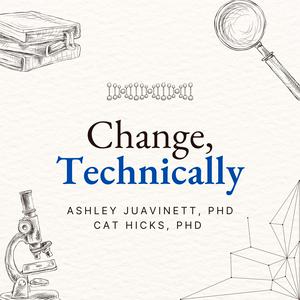
Get the free radio.net app
- Stations and podcasts to bookmark
- Stream via Wi-Fi or Bluetooth
- Supports Carplay & Android Auto
- Many other app features
Get the free radio.net app
- Stations and podcasts to bookmark
- Stream via Wi-Fi or Bluetooth
- Supports Carplay & Android Auto
- Many other app features


Change, Technically
Scan code,
download the app,
start listening.
download the app,
start listening.




